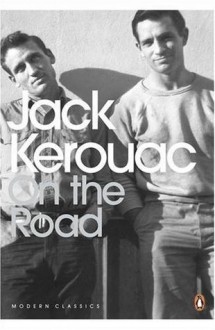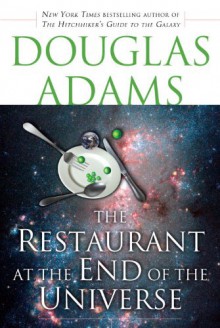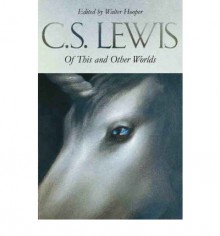
I was originally going to read this book when I was in Paris, however I had only just finished reading a collection of Satre's plays and there were a couple of other books that had caught my attention beforehand (such as [author:Hemmingway]), so I decided to put it down for a while. Mind you, considering that it is set in a seaside town that is fictional, though technically supposed to be La Havre, I could have read it when I was in Rouen, though of course I didn't know anything about the book until I actually started reading it. Anyway, since I have no idea when I will get back to France (particularly La Havre as there is supposed to be an Impressionist Museum there which happened to have the famous Renoir paintings on display in an exhibition, which meant they weren't in the D'Orsay when I was there), I decided that I should read it sooner rather than later.
Well, I have to admit that I am glad I did because this book is nothing short of awesome, even if it is somewhat hard to follow up times. Mind you, I would start praising Satre's writing style but that would probably make me look like a complete idiot because the version that I read was in English and Satre wrote in French, and my French is simply not at a level where I can actually read a novel, let alone determine whether the writing is any good (my German isn't that good either, but at least I can read a Tintin book, though I usually only get past the first couple of pages before I put it down and go and start doing something else, though reading a Tintin book in German is sort of cheating since I am quite familiar with the books anyway).
I probably should start talking about the book as opposed to rabbiting on about anything but the book, but then again I am one of those people that does get distracted quite often, and I do sort of write stream of consciousness style, in the sense that I simply dump onto the word processor the first thing that comes to mind as opposed to actually planning out my review in the way that I would do an essay. Well, this book is stream of consciousness, but it does not necessarily mean that Satre didn't plan it, namely because writing stream of consciousness doesn't necessarily mean that the story wasn't planned, but rather it is writing in a style as if we were looking directly into the mind of the author. Actually, Nausea (or La Nausée as it is in French) is written as a diary of the protagonist who basically puts his thoughts down on paper as he basically drifts through life, and drift he certainly seems to do.
Nausea is about an historian named Antoine who basically is trying to come to terms with who he is. He is financially secure, which means that he doesn't have to work, and basically spends his time researching and writing about an obscure French politician. He is also a bit of a loner, though he does interact with the Autodidact, who is basically reading every book in the library in alphabetical order (something which I probably wouldn't do, not so much reading every book in the library, but reading them in Alphabetical order, though I would probably skip books like Fifty Shades of Grey and the sequels). There are also a couple of other characters in the book, including Antoine's long lost love Anny, whom he tries to get back in touch with only to discover that she has moved on.
Funny thing this, and I guess it goes to show the type of person that he is, clinging onto a past that has long gone. This does happen, especially when one is a loner, that the only people that we know are the people that we have known, so when we decide to start looking for love the loner always looks backwards to the people that he (or she) has known as opposed to the people that he (or she) will know. Then again I guess this is the nature of the future – it is a big unknown, whereas the past is a known, and as such when we look back into the past we only encounter people that we have known, and people that we have known tend to be more comforting because there are no nasty surprises, where as people that we do not know, though we might have met them, are a blank slate, which means the potential for some really nasty surprises.
Yet, as Antoine has discovered, things are not static – they change, as is the case with Anny. She has moved on and simply doesn't want to go back, where as Antoine simply wants to cling to a past that has now long gone. I guess this is why he is an historian since he does not want to let go of the past. However, does that mean that Ford was correct when he said that 'history is bunk'? I don't think so – there are two ways to approaching history: the academic way and the conservative way. The academic seeks to learn from the past to be able to understand why things are the way they are, and to look for patterns to assist us in ascertaining the future. This is the same with the stock market analyst – they analyse historical data in an attempt to look for patterns which might make them, and their client's, money. Then we have the conservative view that doesn't look at the past academically, but rather looks at the past as a form of comfort – in a way the past comforts them because it is familiar, while the future is a vast unknown, and thus the conservative wishes to cling to the familiar rather than take the risk for entering the unknown, which is why, in many cases, we have this war against the future. Then again, it really isn't the immigrants that are taking our jobs, they are just taking the jobs that we really don't want to do – no, the robots are taking our jobs.
Finally, there is the question of existence and identity, but then again this is one of the core ideas of existentialism – who we are. Mind you, this type of query has been going on since time immemorial (or at least as far back as people discovered that they had time to sit down and think about thinking as opposed to working in the fields tilling crops and going out into the forest to hunt animals), even before Decartes famously said je pense, donc je suis (I think, therefore I am). However, what is coming out of this book is the suggestion that our identity, our existence, is defined by our environment. This is evident as Antoine comes to realise that the inanimate objects around him are beginning to define his existence, which is starting to make him sick – ergo the title of the book.
Yet isn't it true that in our modern society we are defined by our job, our house, our upbringing, even the phone that we have: oh, you have a Samsug that is three years old, well I'm better because I have a new one (says the cocky individual before the phone blows up). I guess it is one of the reasons why BMWs are suddenly becoming so popular, and why the urban sprawl is pretty much destroying Australia's market gardens – we need to have an identity and that identity comes from the house you live in and the car you drive. In fact it has even been suggested that some people have had their job applications rejected based upon the suburb in which they live.
Okay, that is a very materialistic look at the book because there is a much more philosophical look as well, and that is our environment. Sure, there is our definition based on our phone and our car, but there is also the definition based on our family, where we grow up, the language that we speak, and the people whom we associate with – many of these things we have no control over. For instance my Dad was an electronic engineer when has resulted in me having a much stronger affinity with computers than the guy next door whose dad is a motor mechanic. Mind you, I ended up doing and arts/law degree, but a lot of that had to do with the post-modern idea of defining ourselves as opposed to letting the world define us. This, in a way, works because there are a lot of toxic people out there who try to define who we are against our will, however there are other aspects to our environment, to our definition, and to our existence, that we should embrace.
In the end embrace that which is good about us and reject that toxic individual who scorns you because you vote for a different political party, don't own a car, and tries to provide an explanation to your life out of their own ignorance, but rather accept those who accept you for who you are, and seek to let the past be the past and see the future as an exciting adventure that needs to be lived as opposed to a terrifying unknown that needs to be stopped. If anything, the one thing about our coming robot overlords is that they aren't going to discriminate.

 Log in with Facebook
Log in with Facebook 












